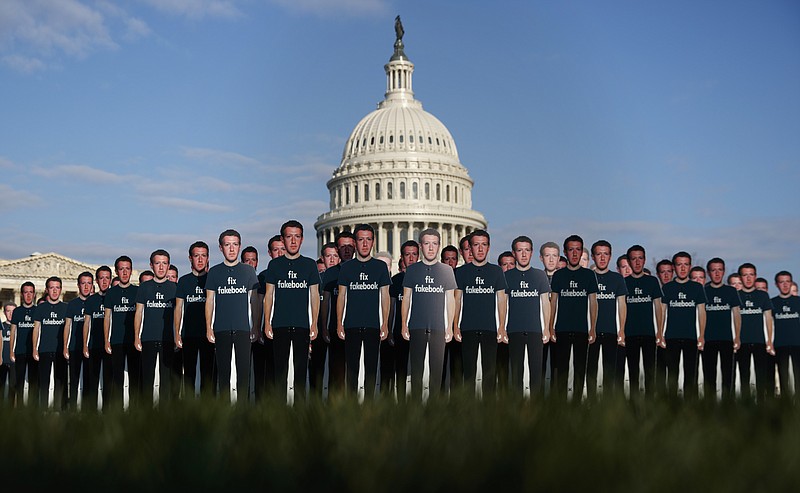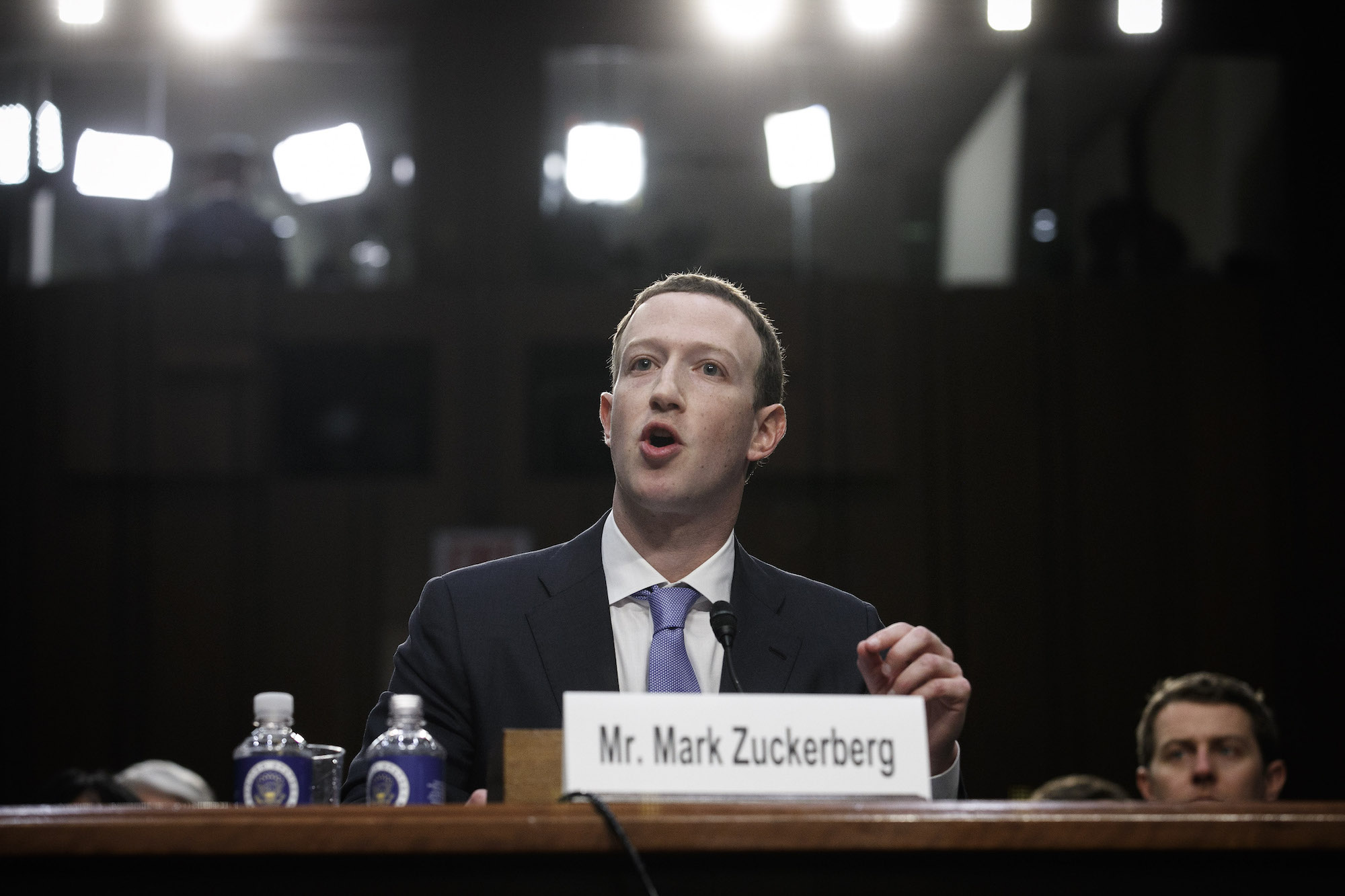Last week, Congress made a show of appearing to grill the creator and chief executive of Facebook, keen on making Americans believe they are eager to move beyond their previous lack of interest in ensuring that the social media platform gives away less of our personal information than we give away ourselves.
But Congress doesn't understand the problem - or the power - of Facebook any more than most of the rest of us do.
Example No. 1: We post a photo of ourselves or a family member or a friend with a birthday greeting. Inevitably the new age appears somewhere in the many ensuing comments. A crumb here, a crumb there - not only do Russians have a little info (even if we don't fill out some silly Facebook survey), but so does the identity thief across town.
Even if we don't say where we are, Facebook knows just by the IP address. The social media company also acknowledged that "malicious actors" scraped information from the public profiles of practically its entire base - more than 2 billion users.
Example No. 2: No matter how much political currency politicians hope to gain out of making Mark Zuckerberg look like a scared college kid instead of a 33-year-old billionaire, our lawmakers are at least as ignorant of the power of Facebook as most of its other users.
The Guardian pointed out the absurdity this way: "Two tweets, one each from Sens. Richard Blumenthal and Kamala Harris, urged their constituents to follow a link to their own Facebook pages, where they were streaming Facebook Live video of the proceedings on Capitol Hill."
The Guardian continued: "The pair of Democrats were among the sharpest questioners of Zuckerberg on a day that was long on political theatrics and short on new information. But their tweets reveal the unspoken dynamic: Zuckerberg is in the hot seat today, but Facebook still has all the power."
Sadly, when two days of hearings with Zuckerberg - in a suit, not the usual T-shirt - were done, neither we nor Congress knew much more about the social network's failures or efforts to protect our privacy. Nor did we know much more about Facebook's missteps that allowed Russia free rein to spread disinformation and propaganda to users.
The takeaway buzzword in the hearings, however, was "regulation." Even Zuckerberg thought the R-word was a good idea.
Zuckerberg confided that his data, too, had been swept up by the app used by professor Aleksandr Kogan to feed data on 87 million users to Cambridge Analytica.
Facebook has maintained that data was resold without permission.
But Blumenthal wasn't buying it. He countered that the terms of service for the app used by Kogan to harvest the data and turn it into propaganda targeting guidelines actually did include permission for his company to "edit, copy, disseminate, publish, transfer, append or merge with other databases, sell, license (by whatever means and on whatever terms) and archive" the information. Apparently Facebook doesn't read the "terms for use" either.
Speaking of managing information, perhaps what Zuckerberg did best during the hearings was not answer questions.
He did that with an oft-mentioned, "I'm sorry." But he also dodged some important queries by invoking "his team."
Washington Post columnist Dana Milbank made this point clearly, listing more than a half dozen lawmaker questions like: How many improper data transfers to third parties have there been? Where do the 87 million Facebook users who had their data scraped for Cambridge Analytica come from? How many fake accounts have been removed? Can Facebook track browsing activity after a user logs off?
Zuckerberg's answers far too often went something like this: "I can certainly have my team get back to you."
Equally often, it was also pointed out that we all have to be somewhat responsible for our own privacy.
In Facebook (and other social media) account and privacy tabs have buttons we can click to say we want to share only with "friends" (even the "friends" we don't really know) and not with third party apps. We can also all read the fine print, especially the lawyer-speak that might as well be in Swahili.
Sen. Catherine Cortez Masto, R-Nev., put the back-and-forth about privacy protection into real-people language.
"Mr. Zuckerberg, you've said you're sorry. I appreciate the apologies. But please stop apologizing and make the change."
As for the rest of us, perhaps we need to reacquaint ourselves with face-to-face friendships.

